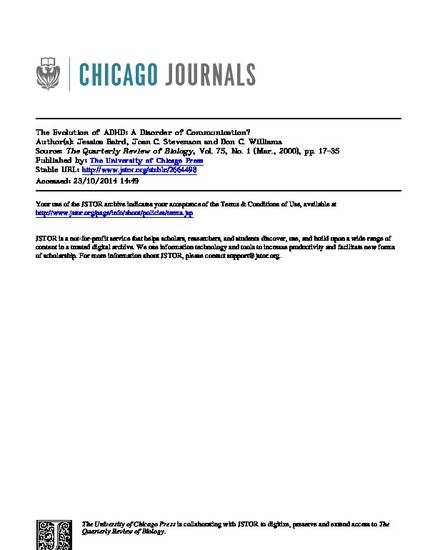
Attention deficit hyperactivity disorder (ADHD) is the most commonly diagnosed psychiatric condition. Many believe that the central disability is impaired inhibition, which leads to reduced abilities in social skills, self-control, organization and time management. The behaviors identified by clinicians as problematic-inattention, hyperactivity and impulsivity-have been incorporated into several evolutionary models as selectively adaptive cognitive skills for surviving the challenges of a variable Pleistocene environment. We propose that the "disabilities" exhibited by individuals with ADHD are maladaptive, and we concur with Barkley that there is a central impairment in the behavioral inhibition system. The underlying neural anatomy and physiology support the possibility that neurotransmitter pathology may have an impact on other interlinked systems (including language), and may also account for the frequent comorbidity of aggression, anxiety, depression, and learning disabilities (many of which are language-related). Language skills compete with other cognitive activities for the attentional system, and thus the evolution of language could not in fact be independent of the evolution of attention. If language represents the ultimate expression of the attentional system, and some individuals with ADHD are seriously impaired in the coordination of interlinked neural systems (including language), then ADHD fits Jerome Wakefield's definition of "harmful dysfunction," and communication impairments should be investigated more thoroughly by clinicians.
Available at: http://works.bepress.com/joan_stevenson/1/
